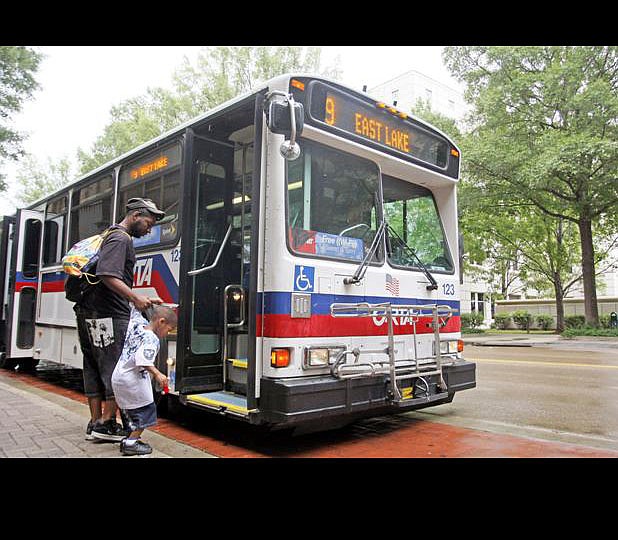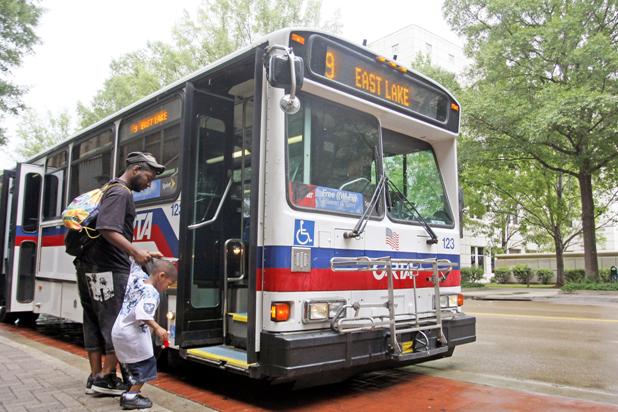Eight days after inauguration, newly elected Mayor Andy Berke announced he would create a Department of Transportation for Chattanooga. Blythe Bailey, a former architectural project manager with a background in urban design, was appointed to head the new department.
All of this should have been huge news, but it was greeted with relatively little fanfare thanks to other sweeping changes in city government structure. But now, as Berke's priorities become more clear with budget allocations, we begin to see transportation's significance.
With a proposed budget of just over $7 million, the Berke administration has elevated transportation as a priority above and beyond where it was previously as a division of public works. The city council has requested $2.5 million on top of that for paving, and the department also may handle road maintenance.
"Transportation infrastructure is fundamentally about economic and community development," Bailey says.
Transportation plays a major role in our lives and has a big impact on our wallets, so it should be a major focus of economic policy. The U.S. Department of Transportation and the Bureau of Transportation Statistics has found that the average person travels more than 13,000 miles annually, and transportation accounts for over $1 trillion in purchases and investments globally. It makes sense that this new department, responsible for the plans and designs of the different ways we commute from home to work and across our city, should play a significant role in further developing what makes Chattanooga a great city.
Thus this intertwined nature of economic growth and smart transportation planning and road maintenance made its way into the Berke administration's budget proposal. A new line item exists in the budget that funds the Neighborhood Transportation Program, a cross-departmental $150,000 initiative with the Economic and Community Development Department that will enable communities to come together and determine the conditions of their own streets and sidewalks.
"So we went to Donna Williams [director of the Economic and Community Development Department], and said, 'How would you like to collaborate on this so you all can be involved with this program.' We can not only make traffic safer but we can strengthen neighborhoods as a result."
Bailey also meets frequently with the head of the Regional Planning Agency and a rotating group of policy advisers and agency heads. The result will be road improvements guided by community input and a more public decision-making process.
But good transportation planning is about more than cross-department programming and collaboration. It has to be about equitable access, too.
In the mostly densely populated parts of U.S. cities - like South Chattanooga and East Chattanooga - more than 28 percent of households have no vehicle, according to the U.S. Department of Transportation. And people living in poverty are seven times more likely than other residents to be zero-vehicle households. So public transportation or walking is their only viable option. Unfortunately, Chattanooga ranks dead last for mass transit access among the nation's top 100 metropolitan areas, according to a 2011 Brookings Institution study.
Here, public transportation reaches only 53 percent of low-income residents. The Chattanooga Area Regional Transportation Authority, known as CARTA, doesn't even provide access to areas in the city where thousands of new manufacturing jobs have landed.
While Berke's proposed budget doesn't provide clear details for a solution, CARTA's funding has been increased by 2 percent, $95,440.
Bailey said he and incoming CARTA executive director Lisa Maragnano will work together to make improvements. That is yet another example of how the new transportation department will function. The department's 41 employees - unsung heroes who repair downed traffic lights and generally keep traffic running smoothly - are working with the rest of the city to build a better network of roads, sidewalks, and buses. That builds a better city.
Addressing transportation infrastructure in a comprehensive way isn't easy, especially with some of the serious systemic problems here. But the transportation department's proposed budget has been a good first step.
Now, let's get started on the next ones.
Joda Thongnopnua is a co-founder of the UNfoundation and writes about policy and politics. You can find him on Twitter at @JodaThongnopnua.

